




As you reflect on the energy and insights shared at the Sports ETA Symposium, you’re not just reminiscing about a successful conference; you’re witnessing a pivotal moment in the evolution of sports tourism.
The Symposium is a powerful testament to the passion and dedication driving this sector forward. It reminds us that sports tourism isn’t just a niche market; it’s a vibrant, dynamic industry with the potential to transform communities, redefine the way we experience sports, and shape the future of tourism.
Envision a future where sports tourism isn’t just about attending games or events; it’s about immersing yourself in a world where sports and travel converge to create unforgettable experiences. Imagine stadiums and arenas not just as venues for competitions, but as hubs of innovation and connectivity, where fans from around the globe come together to celebrate their love for the game. This is the future we are shaping, a future where sports tourism is a transformative experience.
In this future, sports tourism isn’t limited to traditional sports; it embraces the full spectrum of athletic endeavors, from extreme sports to esports. It’s about pushing boundaries, breaking stereotypes, and reimagining what it means to be a sports fanatic.
One of the most exciting aspects of sports tourism’s future is its potential to drive social change. As sports continue to break down barriers and unite people from diverse backgrounds, sports tourism can become a powerful force for promoting inclusivity and diversity. Imagine sports events that are not just about competition but about fostering understanding and empathy, bridging divides, and building a more inclusive world.
As the sports tourism industry continues to grow and evolve, so will the opportunities for collaboration and innovation. The Symposium you just attended is just the beginning; it’s a catalyst for a new era of cooperation, where industry stakeholders come together to share ideas, forge partnerships, and drive the industry forward.
The future of sports tourism is bright, full of endless possibilities and opportunities. It’s a future where sports transcend borders, where travel becomes a gateway to new experiences, and where the power of sports to inspire and unite is more evident than ever before. As you look ahead, remember that you, as stakeholders in the sports tourism industry, are not just spectators in this future; you are pioneers, catalysts for change, and integral parts of shaping the future of sports tourism.
X Matthew Dunn



What circumstances led you to begin working at Visit Lauderdale?
As a graduate student of FIU’s School of Hospitality, I started my career at Marriott and had a good relationship with the team at Visit Lauderdale (at the time known as the Great Fort Lauderdale Visitors Bureau).
A much-revered job opportunity came up in the Sports Department and I jumped at the chance of joining the team.
What was the first thing you did when you learned you got the job?
When I first learned I got the job, the excitement propelled me to immediately turn to Google to delve into the world of sports in Greater Fort Lauderdale. This proactive approach set the tone for my tenure at Visit Lauderdale, signaling my readiness to embrace Greater Fort Lauderdale’s dynamic and vibrant sports scene.

Tell us about the events Visit Lauderdale hosts and at what facilities the more well-known events take place. Why has Visit Lauderdale solicited these events? Is it all due to facility assets and strengths?
Visit Lauderdale hosts a diverse range of events across various sports, leveraging our destination’s unique assets and strengths to attract participants and spectators alike. Some of our more well-known events occur at premier facilities such as the Broward County Convention Center, Fort Lauderdale Beach Park, and the Amarant Bank Center.
These venues offer state-of-the-art amenities, picturesque settings, and ample space to accommodate large-scale competitions, tournaments, and exhibitions.
Our decision to solicit these events is driven by a multifaceted approach that goes beyond just facility assets. While our world-class ven-

ues certainly play a crucial role in attracting events, we also consider factors such as our destination’s accessibility, hospitality infrastructure, and local support network. Additionally, we prioritize events that align with our destination’s brand identity and resonate with our target audience, whether swimming and diving championships or youth basketball tournaments.
Describe why Visit Lauderdale as a destination is so meaningful to you.
Greater Fort Lauderdale is more than a destination; it’s a vibrant tapestry of experiences that captures visitors and locals alike. The genuine sense of community and hospitality permeating every aspect of life makes me feel connected. Whether it’s exploring the Everglades, indulging in world-class dining, or sim-
ply relaxing on the beach, every moment in the destination is filled with warmth and possibility. Greater Fort Lauderdale is not just a place to visit but a place to belong.
Saskia, you are known in the industry as genuine and detail-oriented. How do these traits contribute to increasing the experience for all athletes, coaches, parents, and spectators who compete and visit your destination?
My reputation for being genuine and detail-oriented is a cornerstone for enhancing the experience of athletes, coaches, parents, and spectators who visit the destination. Embodying authenticity, I foster trust and rapport with everyone I interact with. This genuine approach translates into personalized experiences tailored to meet each individual group’s unique needs and preferences. As a result, visitors to the destination feel like they

are indeed the number one priority, leaving with lasting memories and the desire to return.
What was the most significant moment you experienced during the first quarter of 2024?
The most significant moment I experienced during the first quarter was securing for the first time four major Amateur Athletic Union (AAU) sports events for Greater Fort Lauderdale. This summer, the AAU Diving National Championship, AAU Wrestling Scholastic Duals, AAU Taekwondo Nationals, and AAU Karate Nationals will compete in our destination.
The achievement resulted from relationship-building with stakeholders and demonstrating the power of genuine care and perseverance.
In what way or ways are you a different person today because of your experience working at Visit Lauderdale for the past twenty years?
Throughout my 20 years at Visit Lauderdale, my understanding of the competitive spirit inherent in sports has deepened significantly. Initially, I may have viewed sports primarily as entertainment or competition, but over time, I’ve come to appreciate their broader impact on society.
Through my experiences, I’ve witnessed firsthand how sports serve as a powerful unifier, bringing people together regardless of their backgrounds or differences. This realization has influenced my professional outlook and my personal beliefs about the potential for sports to positively affect various aspects of our lives, from fostering teamwork to promoting physical and mental well-being.

As a result, I’ve become more attuned to the transformative power of sports beyond the playing field, shaping my perspective in ways that extend far beyond my role at Visit Lauderdale.
What advice would you give to others in a situation like yours?
I advise embracing openness and inclusivity while nurturing meaningful relationships within the industry. In the competitive world of sports tourism, success often hinges on the strength of the connections we forge with others. Every interaction is an opportunity to build rapport and cultivate lasting relationships with colleagues, partners, or stakeholders.
What would “today Saskia” share with “first day on the job Saskia?”
‘Today Saskia’ would share with ‘First Day on the Job Saskia’ a deeper understanding of sports’ role in uniting people across cultures and backgrounds. She might reflect on how her perspective has evolved since starting her job, realizing the power of sports is beyond just competition.
What goals do you have for your career and Visit Lauderdale in 2024?
My goals for 2024 are centered around elevating our destination as a premier sports tourism hub while furthering my professional growth and impact on the industry. I aim to attract more events and foster partnerships with local sports organizations and venues by leveraging the destination’s world-class facilities.
I am committed to expanding our outreach efforts to new markets and demographics, ensuring that Visit Lauderdale remains top of mind for sports enthusiasts worldwide.


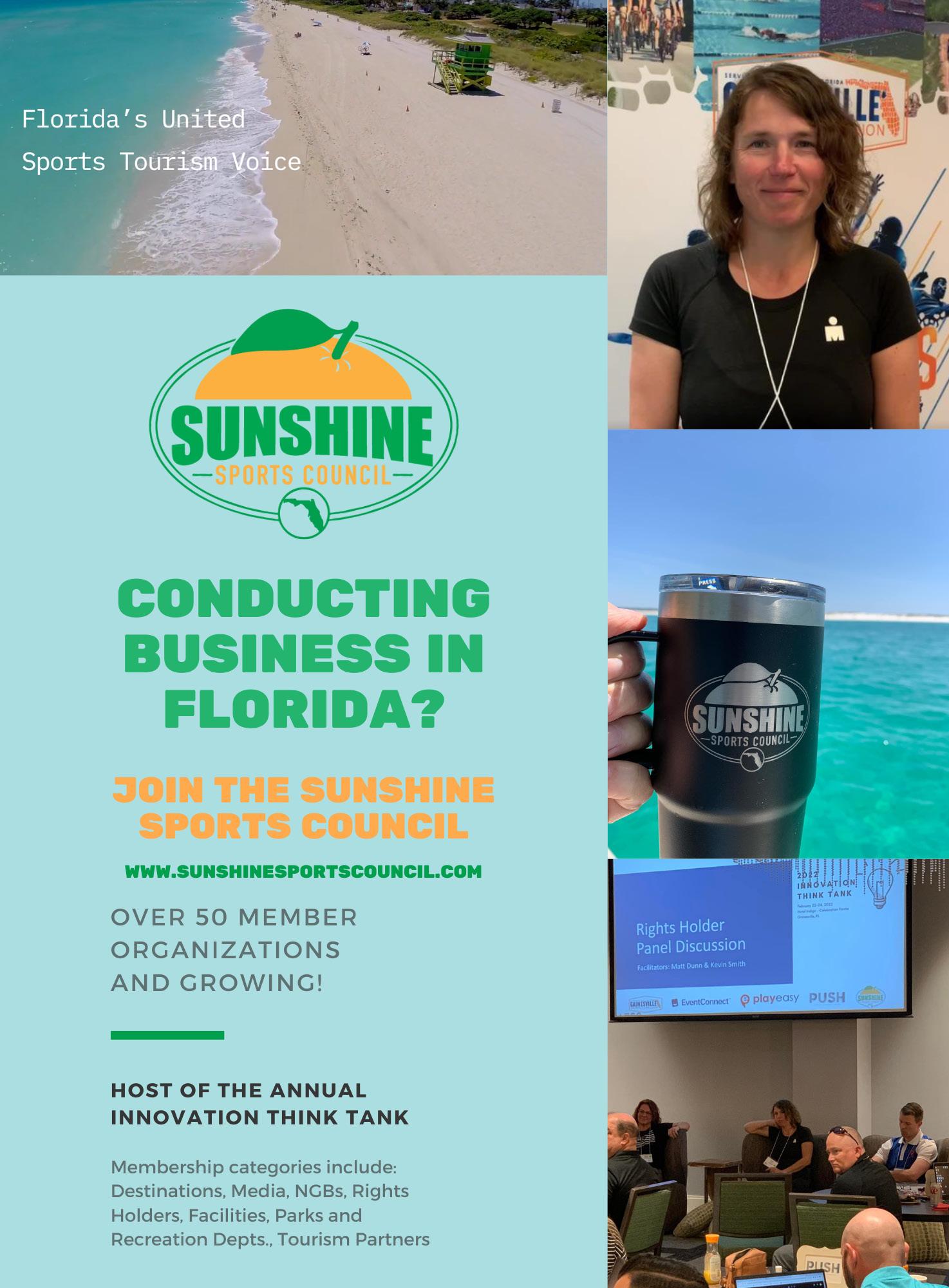


Consider this advice before using rewards points and entering your credit card information.
When it comes to booking a hotel room, it may seem straightforward, but several common mistakes can easily be avoided. Avoid being overwhelmed by options. Before finalizing your stay, take a few moments to consider your needs, desires, and expectations for your trip. Location is critical, as many people often overlook its importance. Travelers should prioritize staying close to the places they intend to visit, ensuring the neighborhood is safe. Mapping out restaurants, shops, and attractions can also help narrow hotel options.
Getting all the necessary information about the room is crucial. Speak to a human before booking to ensure accurate details. Booking through a travel consultant can also be advantageous, as they may secure extra amenities due to their relationship with the hotel.
Questioning why a room is exceptionally cheap is essential. It is recommended to ask about any construction at the hotel or additional fees that may not be disclosed upfront. Ensuring reliable Wi-Fi is available is vital, especially for those who need to work during their stay.
Avoiding non-refundable rates is wise, as hotels often do not refund prepaid bookings. It is essential to receive a confirmation email with an actual confirmation number from the hotel, and keeping a printout as proof of reservation is a good idea.
Seeking an upgrade is often possible. Travel advisors may know about available upgrades before you do, and being kind and engaging with hotel staff can increase your chances of getting one. Honeymooners can also increase their chances by tagging the hotel on social media a week before arrival.
Lastly, taking advantage of professional help can greatly enhance your travel experience. Travel advisors have a wider lens than individual travelers and may know about better destinations, restaurants, and entertainment options. They can provide valuable insights that homemade research might miss.

All-New Event Space
• Martial Arts
• Gymnastics
• Dance
• Cheer
• Tumbling
• Fencing
• Wrestling
• Boxing
• Golf

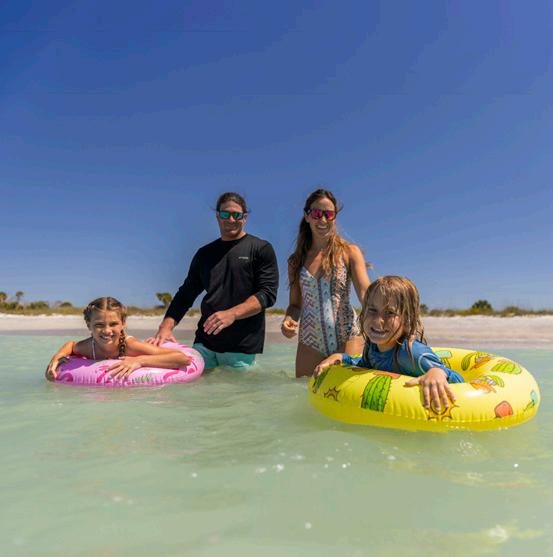
The new Sunseeker Resort Charlotte Harbor is the latest in our winning line-up of sports offerings, with 60,000 square feet of flexible indoor space, a championship-level Aileron Golf Club, 785 guest rooms and more. Plus, post-game relaxation in our charming outside wonderland.
For expert planning assistance, visit PureFlorida.com/Sports or contact Sean.Walter@PureFlorida.com or 941.764.4939.
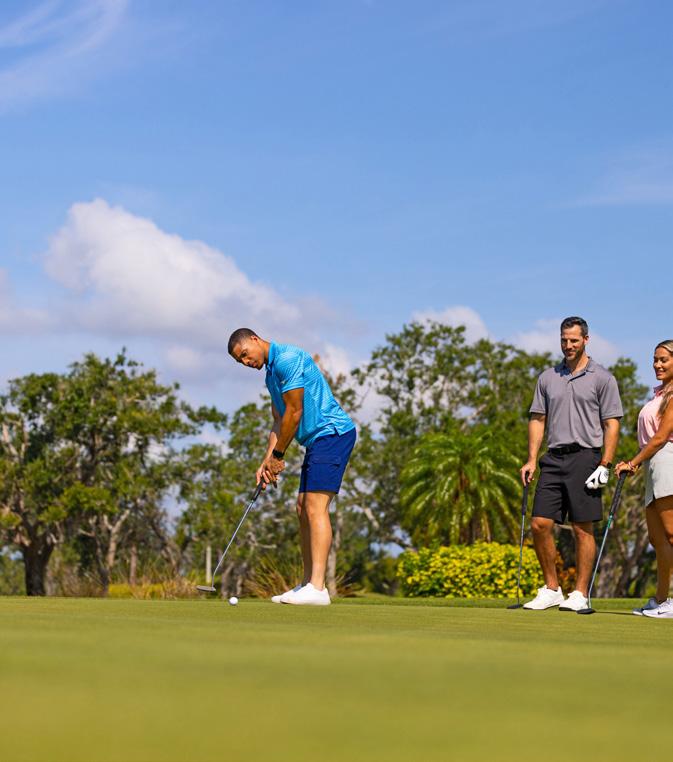






Evaluate your current tech tools to enhance your sports tourism business’s productivity and guest experience.
The right tech tools can revolutionize your sports tourism business, but are you utilizing them to their full potential? A significant portion of internal data in the sports tourism industry goes unused, and despite efforts to enhance the guest experience with tech, many tools remain underutilized.
To ensure you’re getting the most out of your tech stack, consider these strategies:

Evaluate problems with your current tech.
Begin by evaluating your current tech. Are there tools that duplicate processes or need to integrate with other business processes like scheduling, marketing, or surveying? Do your tools align with your team’s preferred work style? Engage with your team to understand what is and isn’t working and identify areas for improvement for streamlining.
Define clear goals for your technology, such as improving athlete experiences, streamlining operations, or driving revenue. Identify workflows that can be automated and areas where communication or data sharing can be enhanced. Focus on tech solutions that align with your organization’s priorities and budget.
Recruit help from managed IT services.
Managed IT services can play a crucial role in handling your tech effectively. They can run updates, maintenance, and security, allowing you to focus on your core organizational priorities. You can improve security, productivity, and scalability by outsourcing IT tasks.
Schedule recurring tech evaluations.
Technology in the sports tourism industry is constantly evolving. Regularly evaluate your tech to ensure it meets your current needs and provides value to your organization’s mission. Consider factors such as whether a tool supports your primary goals, improves internal processes, or integrates well with your existing tech.
By actively managing your sports tourism tech and staying ahead of the curve, you can enhance your effort’s efficiency and team workload and drive results.





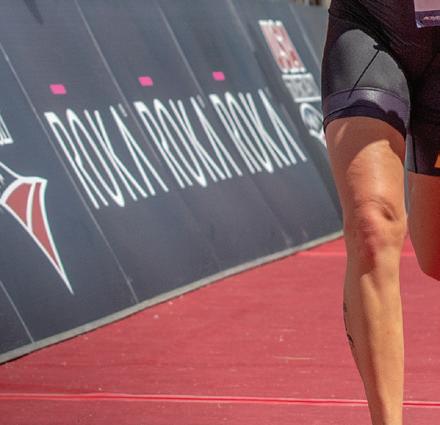




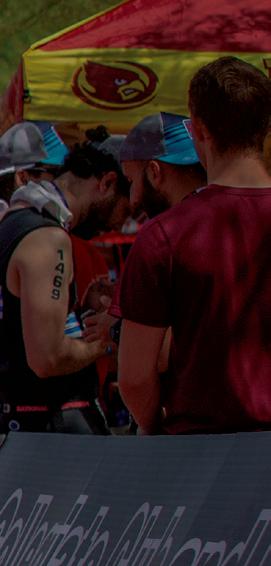














The sports tourism industry is a vibrant, dynamic, and highly competitive landscape. In such a fast-paced environment, the importance of effective messaging cannot be overstated. Whether you’re promoting a destination, an event, a product, or a service, your message must resonate with your audience and drive engagement. Here, we explore four approaches to help you craft compelling messages that cut through the noise and maximize impact.
Storytelling is a potent tool in marketing. Instead of merely listing facts and features, weave a narrative that captures the imagination of your audience. Share stories of

Before crafting your message, it’s crucial to understand your audience thoroughly. What are their interests, preferences, and pain points? Tailoring your message to resonate with their needs and aspirations is vital. For instance, if you’re targeting action sports enthusiasts as spectators, highlighting the adrenaline-pumping experiences your destination or event offers could be a winning strategy.
athletes who have overcome challenges to achieve greatness or highlight the unique cultural experiences that await visitors at your destination. A compelling story can create a lasting impression and forge a deeper connection with your audience.
In the world of sports tourism, a picture truly is worth a thousand words. Utilize high-quality images and videos to showcase the beauty of your destination, the excitement and pageantry of your event, or the thrill of the activities you offer. Visuals can evoke powerful emotions, making your message more memorable and impactful.
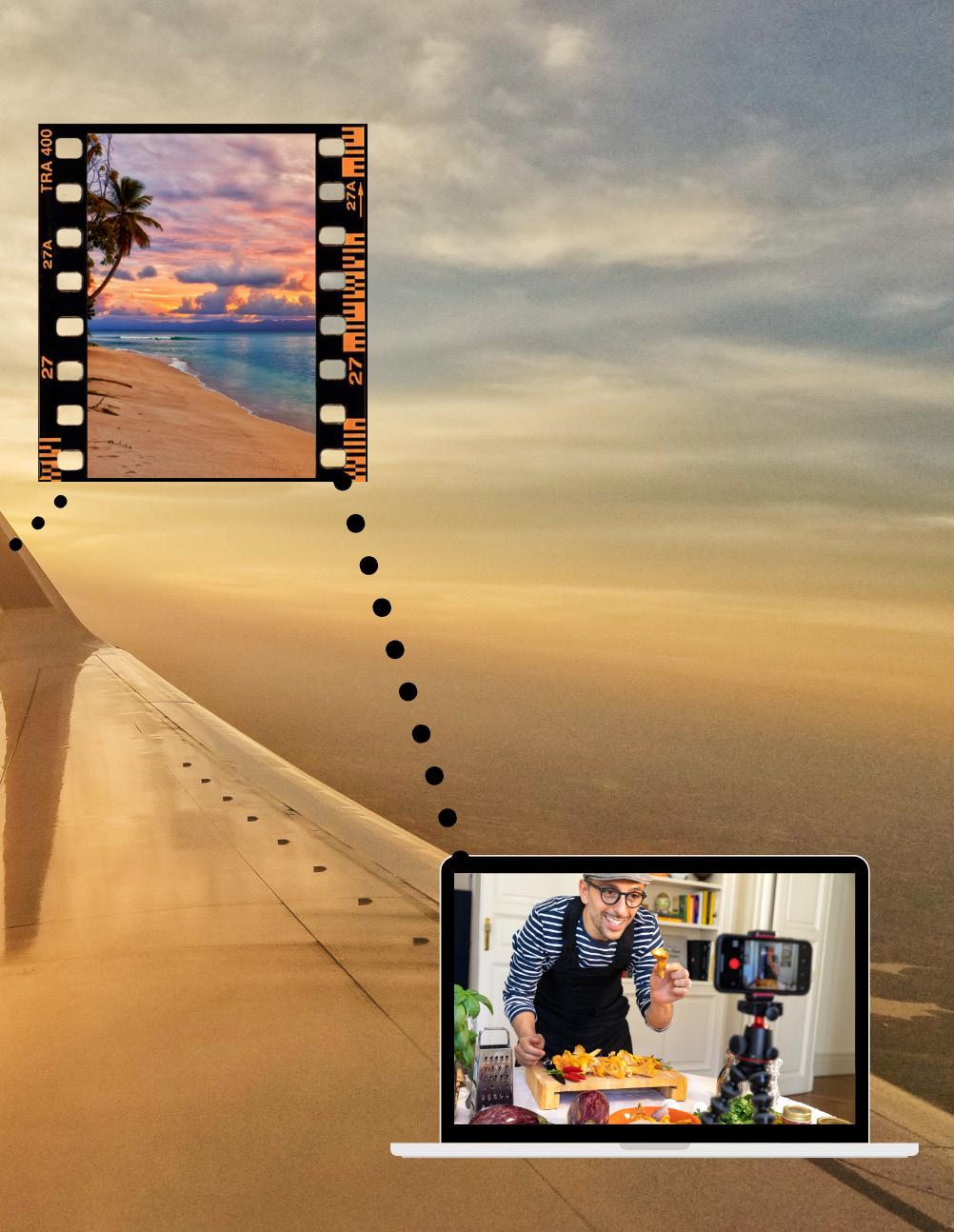
Effective messaging is a two-way street. Encourage feedback, questions, and discussions to engage your audience and build a sense of community. Leverage social media platforms, live events, and interactive experiences to foster meaningful interactions with your audience. Engaging your audience strengthens your brand and creates loyal advocates who will help amplify your message.
Effective messaging is essential for success in the sports tourism industry. By understanding your audience, telling compelling stories, using visuals, and engaging your audience, you can create messages that resonate deeply and drive action. As you navigate the sports tourism industry, remember that mindfulness in crafting your message can push the boundaries of success.


What circumstances led you to begin working at NXT Sports?
I was working in high-profile event planning from the security registration side. The company I was working for managed credentialing and access control for large-scale events like all BET Networks awards shows, NBA All-Star & NBA China Games, the 2013 Presidential Inauguration, Concacaf Gold Cup, New York Road Runners marathon, and many more. I started my career with a strong focus on the event rather than the sport. Many people in this industry begin in sports or business, leading them into the events side.
I got to see and be a part of the world’s largest stages at the time. I worked seven years on and off the road throughout the states and other countries, acting as an extension to dif-


ferent companies or brands that contracted us. It was a truly unique experience because I got to float from one event to the next in various industries and see how they all operate from the backend. My job was getting employed staff or talent in the building or event perimeter to do their job while helping to keep everyone out who wasn’t credentialed or a ticketed attendee through software and data scanning checkpoints. From this event perspective, I learned a lot about how the departments of the companies were operating at the events, and I took that knowledge and embedded it into what we do at NXT.
In 2015, I was looking to change things up. At the time, I spent seven years on the road and gathered a lot of life and personal experiences that I thought could be applied in a different way, but I loved events and wanted to stay in events. That’s when NXT Sports popped up, and I applied. NXT was a perfect blend of events, sports, and a fun working culture. During the interview process, I knew this was where I wanted to be, and I was thankful they also felt that way. April 2015 was my start date, and I haven’t looked back. I originally applied for a sales role, but that quickly changed into an operations role due to my knowledge base from previous work.
What was the first thing you did when you learned you got the job?
I was in Los Angeles at a production meeting for the BET Awards at Nokia Theatre. I took the call from Robin Baxter, a former NXT employee now at Go4, in a quieter area of the mezzanine area where everyone was meeting. Joyfully but calmly, because of where I was, I thanked her for the fantastic news. I completed that meeting and walkthrough. Flew back to Philly a couple days later and accepted with all the excitement! I closed out my commitments to events I was assigned to operate and walked into the new chapter of youth lacrosse events!
Tell us about NXT’s seasons and where the more well-known tournaments occur. Why has NXT selected these destinations or facilities?
NXT has become an around-the-calendar com-
pany, but our high seasons are Summer (late May to late July) and Fall (mid-October to late November). Those two seasons are our main tournament seasons. In the early parts of both seasons, NXT heads south to Mooresville and Huntersville, NC, and has a few stops in between, then we go farther south into Lewisville and Dallas, TX area.
After the event season openers, we head back to the Philadelphia region, where we host most of our marquee events with Chester County CVB at United Sports and Valley Forge CVB at the Proving Grounds. NXT is also very successful in the Mid-West at Grand Park Sports Campus, where we host six events annually.
One of the event mottos or taglines we work with at NXT is that we operate at elite venues. United Sports, Proving Grounds, and Grand Park are just that – an elite venue for an elite experience. From the site visit to venue operations to the execution of the events, everything runs smoothly.
The NXT team has much respect for this industry as a whole. We know how much time and resources go into the day-to-day for the venues and our CVB partners, so we view each venue and CVB relationship as part of our success, but more importantly, our team.
We are also in the process of growing the sports in the winter through Box Lacrosse. We have had a few of these events in the NXT event portfolio for years, but this is one area of growth for the sport. This male-dominant sport has expanded to girls, and now girls are putting on the pad and joining the “box”, which is boards and glass surrounding a playing area – similar to ice hockey minus the ice. NXT operates 70+ lacrosse events/tournaments annually. In the spring, NXT operates a spring training and a spring league, which are showing tremendous growth.
Describe why NXT Sports events are so meaningful to you.
I have my stamp on every event at NXT, but so do every single current employee and the employ-

ees of the past. I have been with NXT Sports for nine years, and in those nine years, I have developed many processes and procedures, which I highly enjoy, but the friendships and relationships we developed made NXT ‘our’ brand. The team’s culture unified us all to be great together and made this job so fun. From that, energy, culture, and passion are how we grew this brand and this sport.
We were/are just a well-oiled machine because we cared. We cared about the little things, but we cared more about each other, and that shined through to what we were delivering to the athletes and their families. Personal achievements are significant, but the interconnectedness of those accomplishments alongside others on the same path can be incredibly motivating. What is meaningful to me is the people I work with and the people we interface with, which help us stay motivated to do more.
Lorraine, you are known in the industry as someone who specializes in logistics, processes, and organization. How do these traits contribute to increasing the experience for all NXT athletes, coaches, parents, and spectators?
My job is to elevate the brand, the tournament directors, and the event experience without being seen. NXT is a high-volume tournament company. We run about two to eight events weekly/weekend at two to ten venues. The internal operating staff stays the same whether we operate two or ten venues, but so does the product we deliver. We had to build an operating model to scale to the volume of events we host, but with the athletes, families, coaches, and hired staff thinking they were the only event we were hosting that week. To make this happen, a lot goes on behind the scenes.
My job isn’t to be the face of NXT to the athletes, club coaches, or families. My job is to support the sales team or tournament directors at NXT in building the events. Not interfacing with athletes, coaches, or fami-
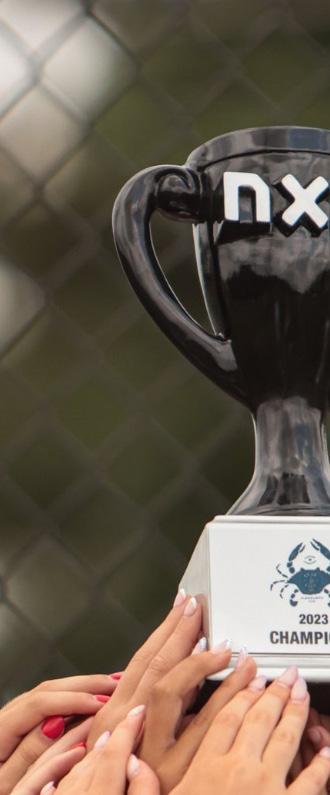

lies doesn’t diminish how much work is going into creating the platform for the events to be successful and grow. My team and I are the behind-the-scenes crew.
Everything we do is to support the brand, event structure, and the people who walk on-site at an NXT event. The list of things we manage is long, so I’m not getting into that, but everything we do is diligently managed through documentation. We set clear goals, develop resources, and ensure everyone involved feels valued and supported.
When an attendee drives or walks on-site from parking, player check-in, vendors, amenities, staff, venue appearance, etc., the ops team at NXT has thoroughly planned that out for months. Regardless of whether you’ve been doing an event one day or nine years, there’s no perfect way to operate outdoor events, though. We operate in a fashion of doing everything we can on the backend or pre-event, so when we are on-site, we can manage the ‘unknowns’ that come with live events. All of us in this industry have stories of ‘what the … just happened” so I’m sure that is relevant to most.
What were the biggest reasons for this approach, and how does it work to your advantage?
The layout of NXT is interesting because there is a dedicated sales team focusing on communicating to Club Directors and individual athletes coming to Showcase events. On the flip side, there’s a full operations team just focusing on event logistics. This really leaves room for the sales team to focus on growing the events and the ops team to scale.
I come from an industry where I managed all law enforcement accreditation for the Presidential Inauguration in 2013, which is 12,000 badged law enforcement from 250 organizations with 75 distribution meetings and points of contact. When you’re doing that kind of work, you have to be highly detail-oriented because every minute matters when there is a hard deadline for the distribution of materials for such an important event. A lot of what I did in my past work was implemented into the strategy of the process and procedures that elevate us to expand our event portfolio without hurting the quality or showmanship of the product we were delivering.
What was the most significant moment you experienced last season?

Last year was our biggest year to date! We added more teams to existing events and created some new events in new regions. There are a lot of idea makers at NXT, and without those people thinking outside the box, new event development would be hard to come by in this competitive industry.
Two events that have been so rewarding to participate in are the Circuit and the Continental Cup. The Circuit is comprised of middle school-age boys trying out for national teams from the US to Canada. This event is played under college rules and shot clocks. Teams compete in two events where we capture players’ stats and rank the teams based on performance. The highest-ranking teams compete in the Circuit Finals in Philadelphia around the NCAA Lacrosse Championship. The Continental Cup is the top girl’s clubs from the US and one from Canada battling to see who is the best in the continent. This event brings in about 200+ college coaches from all over. Let’s NXT showcase our hosting abilities for the elite players and college coaching staff.
In what way, or ways, are you a different person today because of your experience working at NXT?
NXT taught me a lot over the years! It allowed me to pursue an avenue of growth and innovation I’m not sure I would have gotten anywhere else. Being in a small business, you have your hands in a lot of different areas. If you’re a creative thinker, you can take all that information and combine it to create one grand plan. NXT trusted me, allowed me to grow and become a person who can lead. I got to be a part of a
team that relies on each other, and that dependency on each other develops a sense of responsibility for the job and the people around you. When I came to NXT, I was an unsure, not-so-confident, but eager young adult. People around me believed in me and my ideas, which helped me be who I am today.
What advice would you give to others in a situation like yours?
Listen.
Listening is a must-have skillset in managing operations and logistics, especially in the context of collective experiences. By listening to the needs, concerns, and feedback, you can better understand the dynamics at play and make informed decisions that con-
sider everyone’s point of view. It goes beyond hearing words; it’s empathizing with others’ experiences and hardships, especially with staff traveling and working the events. Hearing feedback is essential for improving any issue, or if it isn’t an issue, improving or building a process to make things easier.
What would “today Lorraine” share with “first day on the job Lorraine?”
Trust yourself!
What goals do you have for your career and NXT in 2024?
My goal is been the same for years and will continue to be the same. Commit to continuous improvement and being more effective. Identify the strengths and areas where we can enhance our performance.


Travel is a great way to refresh your mind and soul, but it can also be taxing on your body.
Expert physicians in the field of preventative medicine and concierge care, who have a deep understanding of the human body and its needs, stress the importance of preparing your body before any type of travel.
People often underestimate the impact of stress on the body. Planning, organizing, and packing for a trip can be more stressful than you realize, so giving yourself enough time to prepare and enjoy your travels is essential.
Here are five actions that to take before traveling to ensure your body is ready for the journey:
Getting enough sleep is crucial for a healthy trip. Sleep is critical, but unfortunately, it often gets neglected leading up to travel due to planning, stress, or excitement. Your body does its most important work while sleeping, including strengthening your immune system. Aim for seven to eight hours of sleep every night before your trip to ensure your immune system is in top shape.
Doctors suggest considering an immune-boosting supplement before travel to ensure your system is in top shape. They recommend taking immune-boosting supplements for three to five days before and throughout a trip. Physicians specifically recommend vitamin C, D, zinc, magnesium, and probiotics.
Drinking plenty of water is crucial for your health, especially before traveling. Staying well-hydrated by drinking about two to three liters of water daily will help your immune system function at its best. Water is essential for all cells, tissues, and organs, including the immune system. Flying can be particularly dehydrating, so drink water throughout your flight. Doctors also advise against consuming highly caffeinated drinks and alcohol, as they can cause dehydration.
Incorporating some workouts before your trip can help prepare your body for the physical demands of travel. Getting in a workout right before traveling is important. Exercise helps relieve nerves and stress and boosts your immune system.
Embrace the joy of planning your trip, as it can help lower your stress levels and leave you feeling great for your journey. If you're lucky enough to take a long vacation, enjoy it. While the days leading up to a vacation are important, taking care of your body and immune system regularly will provide sustained health benefits.
Preparing your mind, body, and soul before a trip can enhance your travel experience and ensure you stay healthy.

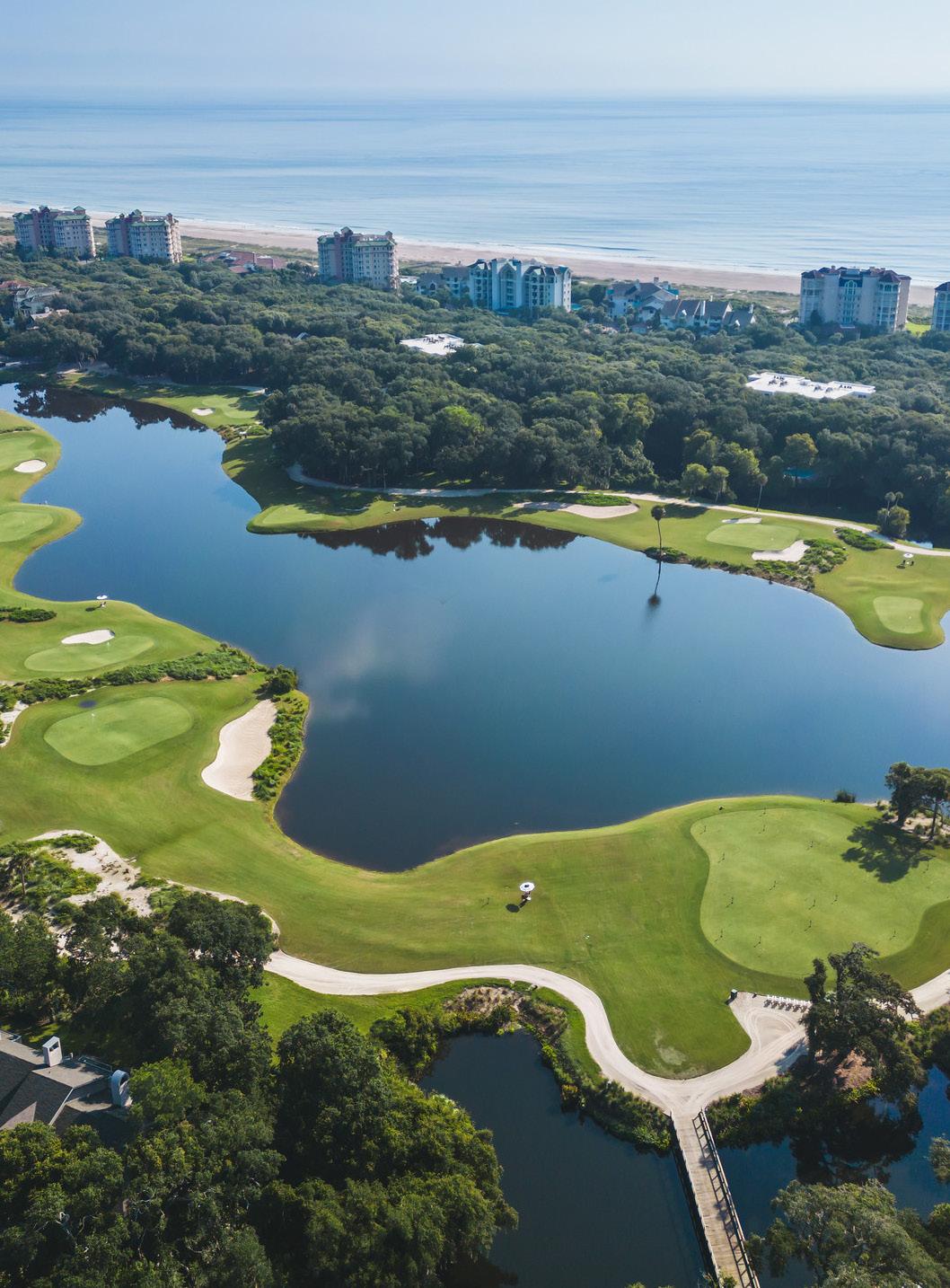



Sports tourism professionals are highly motivated individuals focused on industry and personal financial goals. Here at PUSH, we come across many colleagues and deeply discuss our kindred professional and personal goals. Many of you have retirement plans at the top of your mind as a goal. These wishes resonate with us because they are clear, vivid, and significant to our subscribers. It’s the kind of goal that can drive real change and fulfillment in life. Through our subject matter, we aim to help our friends achieve these goals through strategic planning and action.
Many financial goals tend to be dull and loosely defined. To truly excel, it’s crucial to create engaging, specific, and inspiring goals. Here are four key elements to consider when setting your retirement goals:

Your goals should reflect what truly matters to you in life. In an age where social media often dictates trends, it’s easy to lose sight of your unique aspirations. Your goals should align with your personal values and ambitions, not just what seems popular or lucrative. Think of how you see yourself in retirement when it comes to housing, vehicles, spending money, taking trips, having the ability to continue your hobbies, and more.
The more vividly you can imagine your activities in retirement, the more driven you’ll be to achieve them. Picture yourself spending time in other countries, taking tours, visiting family and friends, leaving behind assets to family members, attending memorable events, or even creating unforgettable experiences for your loved ones. This visualization can serve as a powerful motivation.
Put it in Writing.
Write down your retirement goals clearly and compellingly. Keep this document visible so you’re regularly reminded of your objectives. Research shows that people are more likely to achieve their goals when they write them down and review them regularly.
Define your retirement goals in specific, measurable terms. Avoid overly vague objectives that lack clarity. For example, instead of aiming to just “take vacations,” set a goal to “take two overseas trips per year for two weeks each, averaging $8,000 per trip.” This specificity helps you track your progress and stay focused.
Setting effective financial goals is a critical part of achieving success in retirement. It is essential to approach goal setting with intention and clarity. By following these essential elements, you can set yourself on the path to retirement with activities that fulfill your soul.
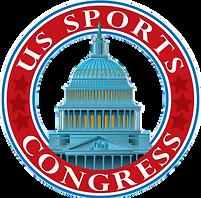

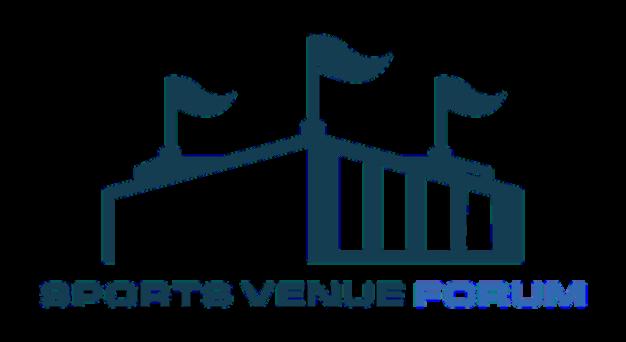





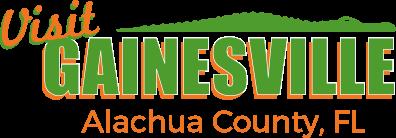

Check in every issue for the unfiltered thoughts of our guest writers and contributors as they discuss the hottest topics in sports tourism.
In this issue, our guest writer discusses the subject of recreating a good working relationship with a colleague.
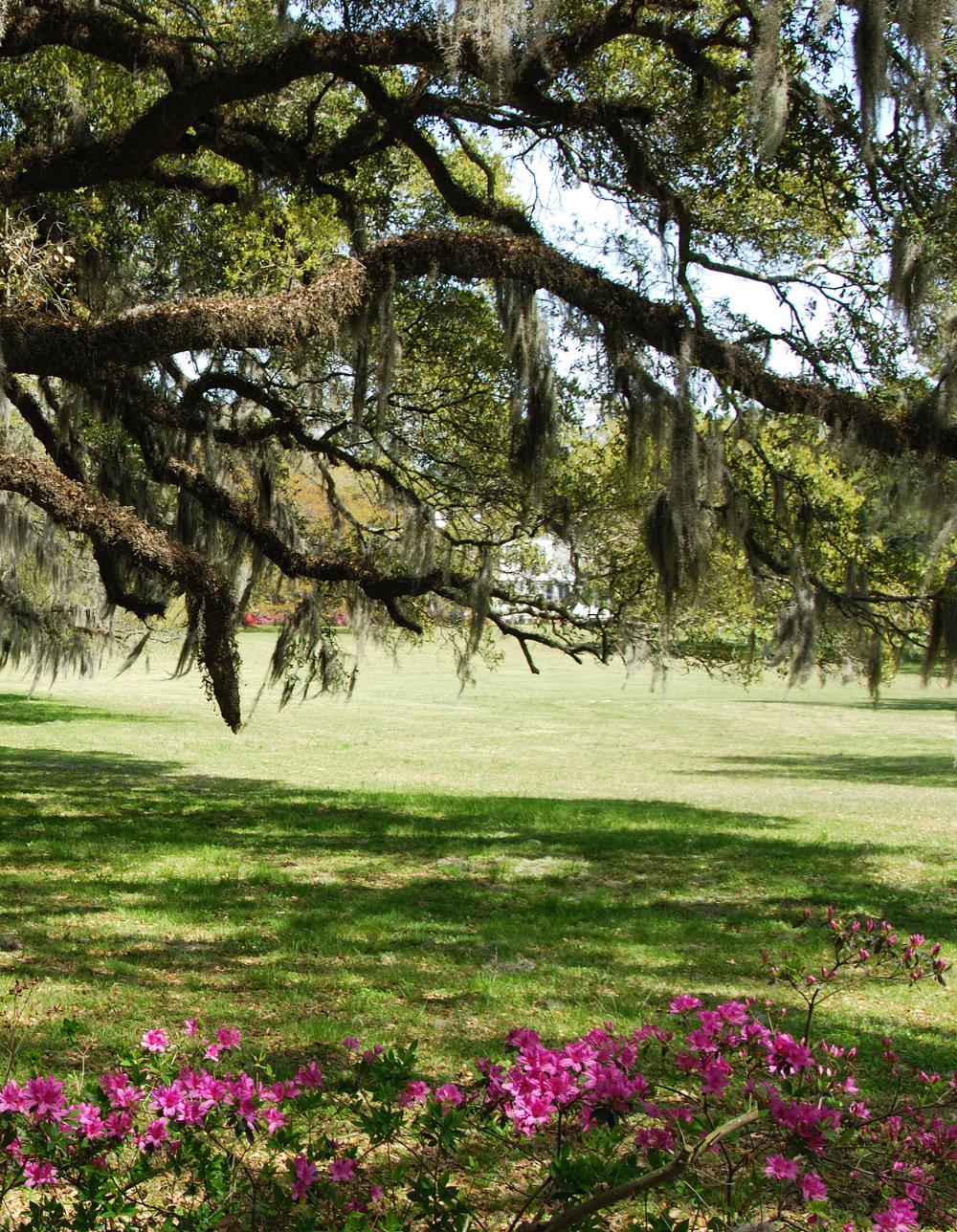
Effective leadership is essential in sports tourism, especially during uncertainty and crises. As we continue to drive forward, various elements can affect our businesses and teams. Leaders must keep adaptation and supporting their teams top of mind.
A big challenge facing leaders today is the exhaustion and burnout experienced by their workforce. The prolonged nature of the pandemic, downsizing, and reduced budgets has taken a toll on individuals, personally and professionally. Signs of this exhaustion may manifest in various ways, such as increased irritability, decreased productivity, and difficulty focusing.
As a leader, it’s important to recognize these signs and take proactive steps to address them.
Leading by example is one of the first steps in supporting an exhausted workforce. Demonstrating self-care practices and maintaining a positive attitude can significantly impact your team. Self-care is not a luxury; it’s a necessity, especially during challenging times. By prioritizing your well-being and mental health, you can set a positive example for your team.
Maintaining mental flexibility is another essential skill for leaders in the sports tourism industry. Adapting to new information and changing circumstances is crucial in times of crisis. Encouraging open communication and admitting when you don’t have all the answers can help foster a culture of flexibility and resilience within your team.
Emotional openness is also vital in supporting your team through difficult times. Acknowledging your emotions and being transparent about your struggles can help create a more empathetic and supportive work environment. It’s a careful balance however between building trust through sharing and burdening your team with your own baggage. Ease into these conversations, and take the time to learn what’s engaging verses oversharing.
Encouraging healthy behaviors is another important aspect of supporting your team’s well-being. Providing resources and opportunities for self-care, such as mental health days, wellness programs, and access to counseling services, can help your team manage stress and prevent burnout. Promoting work-life balance and setting realistic expectations can help prevent your team from becoming overwhelmed.
Reducing stressors in the workplace is another crucial step in supporting your team’s well-being. This can include streamlining processes, providing clear and consistent communication, and offering flexible work arrangements. Creating a supportive and inclusive work culture where team members feel valued and respected can also help reduce stress and improve morale.
Effective leadership in the sports tourism industry during challenging times requires a combination of empathy, flexibility, and resilience. By prioritizing the well-being of your team and creating a supportive work environment, you can help your team navigate the challenges they face and emerge stronger than ever.
